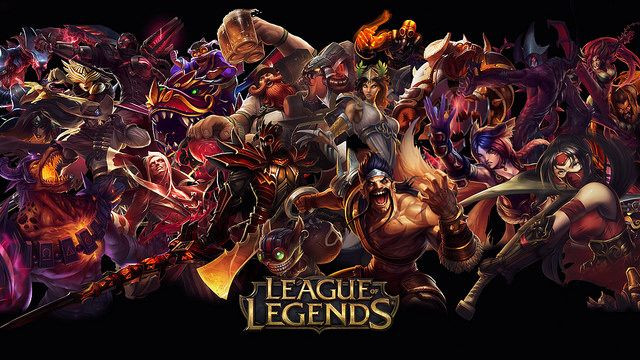What Does Your League Of Legends Username Say About Your Personality? More Than You Think

To experience video games online, a player needs to have a username, something that identifies who they are without revealing their real name. It can be anything they want, which allows for a certain level of anonymity. But a new study has found that despite striving for anonymity, players can still give away lots of information about their personalities.
Researchers from the Intelligent Games and Game Intelligence Project in the Department of Psychology at the University of York set out to discover whether the usernames players chose were any indication of how they would behave inside the game. Their findings revealed not only potential aspects of their real-life personalities but also their ages and even hints to possible conditions like autism or sociopathy.
For the study, researchers culled 450,000 points of data from League of Legends — one of the most popular computer games in the world. The data, provided by developer Riot Games, was a representation of all active accounts on a single day in 2013, and each one corresponded with a single player’s username; how they acted inside the game, such as good/bad behavior, language, sportsmanship; and other players’ reactions to them.
These reactions came from actual player feedback in the game, which Riot calls “honor” and “report.” Giving a player “ honor” acknowledges their ability to make the game a positive experience in any of four categories: helpful, friendly, teamwork, and honorable opponent. To “report” a player, meanwhile, means to mark them as displaying negative behavior, including being verbally abusive, using offensive language, or refusing to communicate with the team.
After analyzing the data, researchers found players who had negative words or profanity within their username, like g0ats3x, tended to display negative behavior within the gaming world. Positive usernames were found to have the opposite effect; players tended to build relationships within their team and be leaders inside the game.
Out of the data, the researchers also found 11,630 names featuring a series of numbers, which they learned corresponded to the age of the players. What’s more, they found that out of these, those with negative usernames tended to be younger. Hence, anti-social players were found to "behave poorly" while "older people [were] less so," co-author Professor Alex Wade said in a press release.
"Video games can provide a wealth of useful population-level information on developmental, cognitive, and psychological processes," Wade said. "We found that people who have antisocial names tend to behave in an antisocial way within the game."
In their conclusion, the researchers wrote that the behaviors seen in their data may connote psychiatric disorders. However, only further research will uncover whether this is true.
Source: Kokkinakis A, Wade, A, et al. What's in a name? Ages and names predict the valence of social interactions in a massive online game. Computers in Human Behavior. 2016.
Published by Medicaldaily.com



























